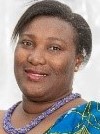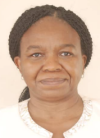
How should we define and measure
demand for and use of family planning?
New directions and frameworks for
family planning measurement

Join us for the second of two webinars led by the
IUSSP Panel on Rethinking Family Planning Measurement with a Reproductive Rights and Justice Lens
Wednesday 21 June 2023
Presentations files:
- Naa Dodoo - What is the true prevalence of traditional contraceptive use? Evidence from four African countries
- Sneha Challa - Person-centered & Rightsbased Family Planning and Fertility Measurement
- Priya Nanda - Embedding new measures of agency in surveys to understand impact on contraceptive use in India
- Funmilola OlaOlorun - Measurement of FP/Fertility with a Couple Perspective
- Mahesh Karra - Measurements in Family Planning with Existing Data: Thoughts and Evidence
- Madeleine Short Fabic - Panel Discussion
Webinar description:
This webinar continued the conversation from the first webinar “Why do we measure what we do? Reflecting on the history and current use of demand-side family planning indicators” and focused on new directions and perspectives on the future of demand-side family planning measurement. Global leaders and research experts presented on shifts in measurement, including decolonization of measurement, the development of new measures, and shifts to focusing on new outcomes.
Featured speakers for this 2nd webinar:
“How should we define and measure demand for and use of family planning? New directions and frameworks for family planning measurement”

Ngozi Erondu, Co-Chair of the O’Neill Institute – Lancet Commission on Racism and Structural Discrimination and Global Health and the Technical Director of the Global Institute for Disease Elimination, Dubai, United Arab Emirates
Dr Ngozi Erondu is a trained infectious disease epidemiologist with 15 years of experience working to improve health systems and global health governance. Her policy expertise includes strengthening regional leadership in pandemic preparedness and health security governance reform. Through Dr Erondu’s thought leadership and scholar activism in global public health, in both academic and research environments, she champions shifting power in global health development and empowering equitable research and funding partnerships. She has also given lectures at over 60 universities, civil society and business forums on the importance of equitable inclusion in global health and publishes widely on this topic.

Sneha Challa, Researcher, University of California San Francisco
Dr. Sneha Challa holds a PhD in Global Health and is currently a researcher at the University of California San Francisco. Her current work includes contributing to the development of several new measures to capture people’s ability to align their contraceptive preferences and behaviors. She has undertaken research in Ghana, Niger, Nigeria, Uganda, and the United States primarily focused on leveraging interpersonal communication and social norms to support people’s ability to achieve sexual and reproductive wellbeing. She is particularly passionate about advancing research on sexual and reproductive health among South Asian diaspora populations and improving measurement of the full range of contraceptive decisions.

Naa Dodua Dodoo, Senior Research and Policy Analyst, African Institute for Development Policy, Malawi
Dr. Naa Dodua Dodoo is a demographer by training and undertakes research on the conceptualization of gender and social inclusion issues for women and girls in Africa and internationally. She has keen interests in how African women conceptualize and understand their status and how social, economic and cultural institutions interact to determine women’s status. She currently leads the Population Dynamics and Demographic Dividend area of work at the African Institute for Development Policy (AFIDEP), which includes work on the drivers of rapid population growth, the status of women, migration, and youth demographics. She is also the Ghana lead for the AFIDEP-led traditional methods of contraception project, “Re-examining Traditional Method Use - Desperation or Innovation,” which aims to advance understanding of the true prevalence of traditional methods of contraception in the Democratic Republic of Congo, Ghana, Kenya, and Nigeria, as well as women’s motivations for using these methods.

Funmilola OlaOlorun, Senior Lecturer in the Reproductive and Family Health Unit of the Department of Community Medicine at the College of Medicine, University of Ibadan
Dr. Funmilola (Funmi) OlaOlorun is a Community Health Physician with a PhD in Public Health from Johns Hopkins University. She teaches and supervises research of medical and postgraduate public health students at the College of Medicine, University of Ibadan, in Nigeria. Her research is focused on women's health across the life course. She has conducted research on family planning, fertility desires, household decision-making, professional support for breastfeeding, gender issues, intimate partner violence, and menopause. She was a co-Principal Investigator for the Performance Monitoring for Action program in Nigeria and has been involved in many internationally funded studies from a diverse pool of funders.

Mahesh Karra, Assistant Professor of Global Development Policy at the Frederick S. Pardee School of Global Studies at Boston University and the Associate Director of the Human Capital Initiative at the Global Development Policy Center
Dr. Mahesh Karra’s academic and research interests are broadly in development economics, health economics, quantitative methods, and applied demography. His research utilizes experimental and non-experimental methods to investigate the relationships between population, health, and economic development in low- and middle-income countries. He has conducted field work in Sub-Saharan Africa, South Asia, and Latin America, and his current research uses randomized controlled trials to evaluate the health and economic effects of improving access to family planning and maternal and child health services in Malawi, India, Nepal, Sri Lanka and Tanzania. Previously he worked for the Population Reference Bureau and the Futures Group International and has been a consultant for numerous international organizations. He received a B.A. in Economics and Hispanic Studies from McGill University, an M.Sc. in Economics from the Barcelona Graduate School of Economics, and an Sc.D. in Global Health Economics from Harvard University.

Priya Nanda, PhD, Independent Consultant
Dr. Priya Nanda is an independent consultant with expertise in research, evaluation, and grantmaking on gender and sexual reproductive health and rights issues. Most recently, she was a Senior Program Officer with the Bill & Melinda Gates Foundation at the India Country office on the Measurement Learning and Evaluation team. In this role, she led grantmaking to support health systems strengthening and family planning with a focus on gender, social norms, and equity. Prior to joining BMGF, she was the Director of the Social and Economic Development group for the International Center for Research on Women's (ICRW) Asia Regional Office in New Delhi, India. She has led large research and evaluation studies on measurement and evaluation of women’s economic empowerment and access to health services, including reproductive and sexual health and adolescent empowerment programs. She has a Ph. D in health economics from the Johns Hopkins University, an MIA from Columbia University and an MA and BA in economics from the University of Delhi.
The Rethinking Family Planning Measurement with a Reproductive Justice and Rights Lens steering committee members are:
Members: Georgina Binstock (Centro de Estudios de Población y CONICET); Fredrick Makumbi (Makerere University); Abdoul-Moumouni Nouhou (Groupe de Recherche et d'Action pour le Développement (GRADE Africa) ; Niranjan Saggurti (Population Council); Madeleine Short Fabic (US Agency for International Development (USAID)
Council Liaison: Irene Casique Rodríguez (Universidad Nacional Autónoma de México)
